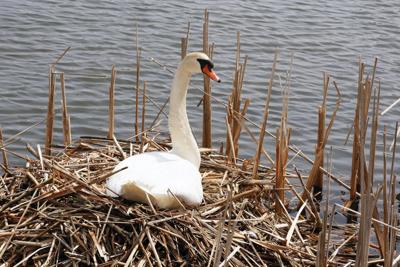What is A Good Life? Plato said it requires virtue. Epicurus said the trick is never talking politics. Nietzsche said if you’re striving for happiness, you’re losing. To the Star, A Good Life is our new advice column in which our philosophical advisers help you navigate everyday dilemmas about romance, career and how best to spend your fleeting time on earth, guiding you out of the existential muck, toward A Good Life.
It seems to me that all of the creatures we share the planet with are smarter than the so-called “sapiens “ in one particular respect. They know how to live on planet Earth without destroying it. Where did we go wrong?
Comic strips of a certain vintage used to play with the double meaning of “homo sap,” where the Latin for wise also means the slang for dummy. We’re all saps of our own arrogance, after all, duped by smugness and delusions of superiority. As the annual Darwin Awards remind us, for an allegedly smart species, we do an awful lot of really dumb things all the time.
One of them, as you suggest, is fouling our own nest. We are perhaps the only species so dedicated to destroying its own conditions of life. A key insight of Darwinian natural selection is worth recalling. Its “judgments” are really only bleak tautologies: the species most fit to survive is just the one that does so. If we humans want to keep on thinking we’re superior, we need to get our survival act together.
The good news is that homo sap is not just a passel of preening hominids making dubious claims about our own awesomeness. In certain collective-action situations, for example, homo economicus is capable of making rational decisions that contribute to overall thriving — a silver lining hidden in the cloud of the dismal science. Homo faber recalls our capacity as makers, creating tools and weapons, yes, but also works of inspiration and innovation.
Maybe best of all is the human mode celebrated by Dutch historian Johan Huizinga. We are, he said, homo ludens — the playful species. Play means not just games and contests, but also free exercise of imagination, spontaneous interaction and beauty unburdened by coarse purpose. Sure, it sounds awfully optimistic, maybe even sappy in yet another sense. But fellow saps! Maybe this, and not some hubristic claim of smarts, is where our species-value truly lies.
More and more, we are being defined by politicians and business alike as “taxpayers” or “consumers.” What I want to know is, what happened to being a good citizen?
Ah, so true. This reduction of ourselves to customers of the state, grudgingly swapping tax dollars for services, is one of the worst perversions of the democratic ideal, just because it’s so pervasive and so casual. Not only does that assumption set us up for failure — what government bureaucracy could ever satisfy a nation of endlessly dissatisfied shoppers? It also hollows out any prospect of vibrant public discourse or deeper civic belonging.
Philosophers have tried, in recurring cycles, to defend versions of a more fully engaged citizenship. The project runs from Aristotle’s virtue theory and Roman republicanism to what the American political theorist Benjamin Barber called “strong democracy.” Alas, almost all of these rich accounts of political obligation are far too demanding to fly in our entitled do-your-own-thing world of lax liberalism. I mean, we can barely get a decent minority to vote once in a while.
The resulting retreat into isolated private worlds is both complacent and corrosive. In her 1958 treatise on “The Human Condition,” Hannah Arendt argued urgently for the centrality of “political action.” Common projects, she said, call forth the highest aspects of humanity. They give point and purpose to those parts of life devoted to work and relationships. Action is woven into meaning; and meaning carries us forward into something beyond our mortal limits.
We find ourselves at a time of national reckoning in this country, for reasons both good and bad. The clamour for “elbows-up” nationalism feels fleeting, and rather thin. We also hear calls for a national public service, though; and this idea is both concrete and structural. This need not be military — public health, environmental protection, youth development, or disaster response are all viable options. Such service is not a swap, a bargain made in exchange for rewards now or later. It is an end in itself, offered for the greater good, building community along the way. What a radical idea!
Need existential advice from a philosophical adviser? Send your dilemmas and questions to agoodlife@thestar.ca and we’ll guide you to your good life.
Error! Sorry, there was an error processing your request.
There was a problem with the recaptcha. Please try again.
You may unsubscribe at any time. By signing up, you agree to our and . This site is protected by reCAPTCHA and the Google and apply.
Want more of the latest from us? Sign up for more at our newsletter page.



























To join the conversation set a first and last name in your user profile.
Sign in or register for free to join the Conversation